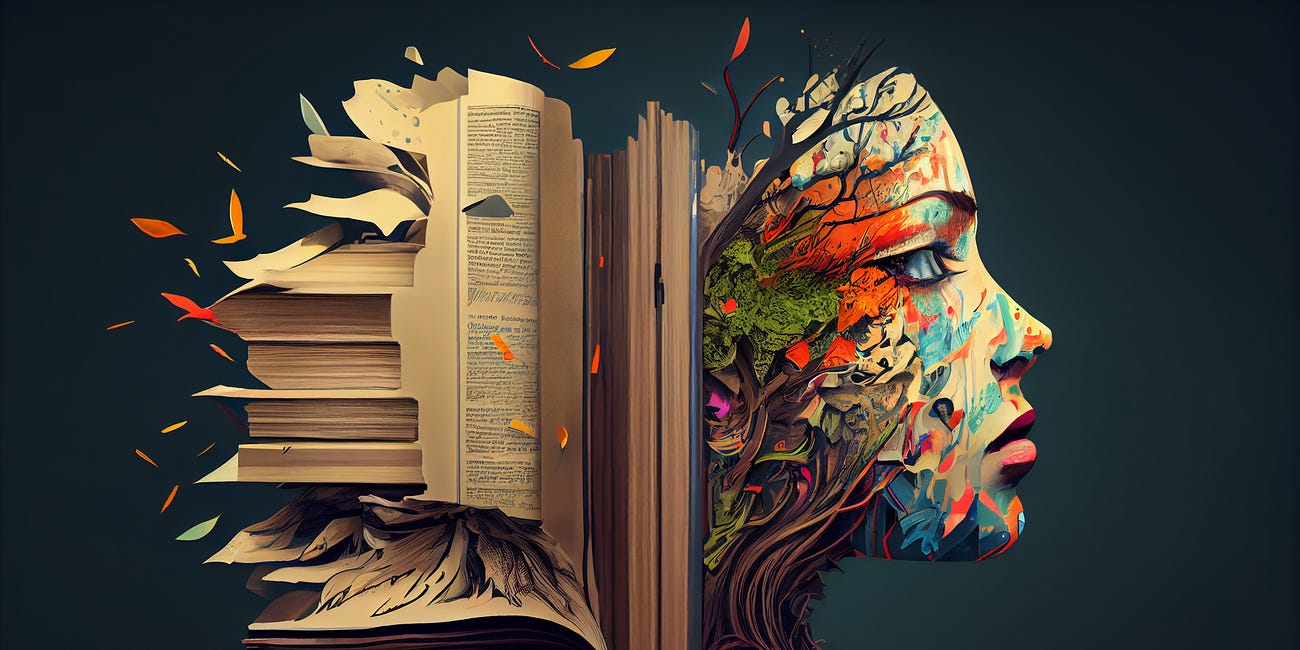An Interview with Garrett Francis: Author, Journal Founder, & Former Publisher
Garrett Francis is the author of a literary newsletter that features essays, short stories, and serialized novels. He’s also founded several digital journals and publishing projects over the years, which released work by over seventy contributors, as well as a few book-length works by new and emerging authors.
When I came across his newsletter, I read Trisomy, one of his short stories. Immediately, I was a fan. Not long after that, I asked him for an interview and he was good enough to oblige.
1. I Asked About His Process
GF:
My process usually begins with a quick note in my phone that, I think, tries to start explaining something that’s gnawing at me. Most of the time, what’s gnawing at me is an image. There isn’t really a pattern—at least from what I can tell—of what that image is, but most recently the image is of a point in the plot. It might be the end of the story. It might be the beginning. It could be somewhere in the middle. But there aren’t any faces. No characters. Just a situation, really, and if I find the image of that situation strong enough, I’ll keep building off of it.
So in that way, even if it isn’t a formal outline of the story, I do spend a fair amount of time building ideas and timelines well before I open up a new document.
2. I Asked Whether His Process Differs Depending Whether it’s a Novel or a Short Story
GF:
I definitely approach them in the same way, largely working off of images that come to mind. For me, characters come later, and, though that seems to go against convention (at least the conventions passed down to me), I don’t think that that makes characters any less important. It’s just an order of operations kind of thing.
I’m working on a novel now, and have been off and on for about three years. And by “working” I do mean that I have maybe half of a draft actually written, and then three years of notes on my phone building off of one another—which I’ll of course have to sort through and weigh/measure at a later date. I’m sure many will be discarded, but it has helped me feel like I’ve still been able to make progress on the thing when I don’t actually have time to wrestle the draft together (I work full-time and am a dad to a two-year-old, so time can be hard to come by).
3. I Asked Whether He Strives for Unity of Effect, or Whether He Prefers To Interweave Multiple Impressions
GF:
That’s a good question. And I think the easy, boring answer is: both.
I think I tend to consciously strive for my stories to have an overarching point they’re trying to make, or some overarching purpose. Because, for me, I think to be motivated to write a story, there’s something gnawing at me that I think needs to be said in some way. Part of the process of writing said story is me figuring out what exactly that is.
But at the same time, I do hope that my stories are complex enough to give the readers more than just one big, bold point. I hope there’s more there to be chewed upon, if that makes sense.
4. I Asked Whether He Uses Literary Techniques When Writing Essays
GF:
Definitely. I think the one I rely upon most often is the manipulation of time. It can of course be a tactic that easily becomes overused, but sometimes I tend to find something being told chronologically a little stale. Not always! But sometimes. And I think that, though our bodies experience time linearly, our brains really don’t. We’re constantly thinking of the future. Constantly comparing it to the past. And so I think that nonfiction should sometimes do the same.
Plus, from a drafting perspective, sometimes asking my essay’s narrator to speculate on something that has yet to happen can uncover a whole new strand of thought.
5. I Asked if He Had Any Strong Opinions About Style
GF:
As a reader, no, not really. I think I’m really open to style, and find experiments in style to be really refreshing, even if they pose challenges to readers. I mean, I tend to think that good storytelling will always challenge readers in some way. Does that need to come by way of style experimentation? Not necessarily. But sometimes there’s a great payoff in it. That said, a piece can occasionally become “too experimental” for me, and when that happens it usually means that the style has become the author’s focal point. The primary objective is to thrust forth a new style, not to tell a story that’ll move the reader in some way.
As a writer, I wouldn’t say that I have strong opinions on style either. I do make it a point to try something new, stylistically, with every piece I publish. I think it’s important to always be experimenting, and to be pushing yourself in that way. Something I deeply fear as a writer is becoming predictable, or complacent, so I naturally fight like hell against that.
6. I Asked ‘What Makes a Good Story’?
GF:
I think, generally, people read in search of connection. Not necessarily because they’re looking to become pals with the author. Or because they’re missing something in their lives that they expect a work of fiction to fill. But they are searching for something, and often that “thing” is point of view: either a point of view that’s going to confirm something within their own point of view, or something that can expand it.
And it isn’t quite that simple, I think. It can’t be binary like that. But again, speaking in what I feel are general terms…
I think that why people continue to turn to reading, versus, say, just consuming visual media, is that they want to be active participants in the storytelling process. Meaning: when you watch a film, or a TV show, what you’re experiencing is someone else’s visual interpretation of a text, be it an original screenplay, a book adaptation, etc. When you read a book, or a short story, your brain is called upon to interpret what it is you’re reading. It’s a commitment—finishing a book can take ten hours of your time, for example, while the film version of the same story can be condensed to two hours. But for that reason I don’t think other storytelling mediums can match the depth of connection that can be made when a book really resonates.
As for what makes for a story that CAN resonate with readers, that’s tricky. I return to point of view, and think of what has worked for me as a reader, at least recently, and I point to a book’s narration. I think that the narrator must be treated with the utmost care by the author, maybe even more than the story’s protagonist. Because even if you have unforgettable characters and a deep, tightly-wound plot, if your narration isn’t working, readers just won’t be able to find a way in.
Note: he replied to this question a second time for this article:
Why Do You Read? What Makes a Good Story? Q&A With Twelve Authors (Part Two)
What makes a great character? What makes a great story? Why do you read? I asked these questions to several authors and game designers that I’m lucky enough to have met online, and their answers were eye-opening. They gave me permission to reprint their replies below, and I hope you find them as interesting as I did!
Closing Thoughts
I interviewed Garrett months ago, but life got a little messy and I’m only posting the article now. I want to thank Garrett for taking the time to answer these questions for me back then. His newsletter is excellent and I definitely recommend it!
----
If you found this article interesting, do me a big favour and hit that heart icon, subscribe, and give a recommendation if you think I deserve it!
----
All rights reserved. Permission is not granted to use this to train an ai







A wonderful interview. I adore you both!